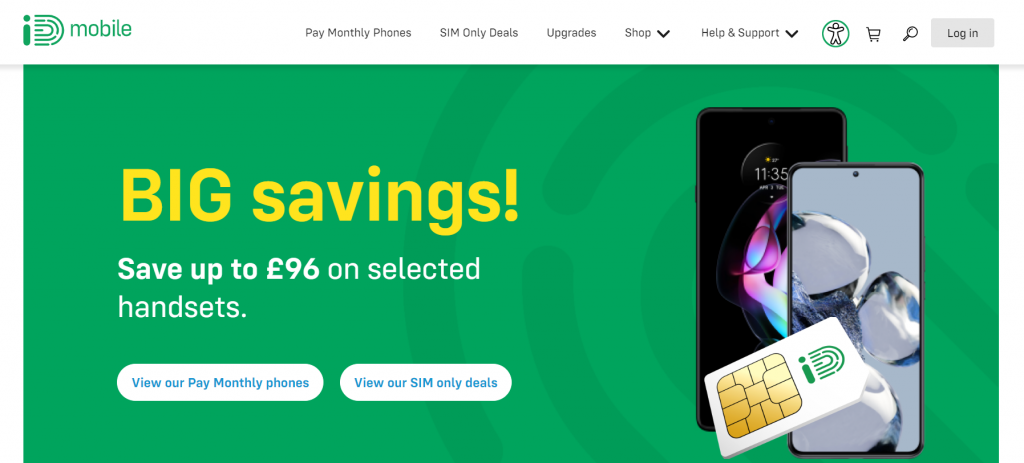
Are you tired of being bombarded with confusing information about phone SIM plans? Don’t worry, you’re not alone. There are many misconceptions surrounding SIM cards that can make it difficult to choose the right plan for your needs. That’s why we’ve put together this blog post to debunk five common myths about phone SIM plans and help you better understand their benefits. Whether you’re a tech-savvy individual or just looking for a simple solution, we’ve got everything covered in this comprehensive guide! So sit back, relax, and let’s dive into the world of phone SIM plans!
What is a SIM card?
A SIM card, or Subscriber Identity Module, is a small chip that you insert into your mobile phone to connect it to a network. It stores information about your identity and allows you to access various services provided by the network operator.
The SIM card acts as an identification tool for the network so that they can verify who you are and provide you with specific services based on your account type. Without this vital component, your mobile phone would not be able to make calls or connect to the internet.
SIM cards come in many different sizes depending on the device they will be used in. They range from standard-sized chips which were common before 2010, micro-SIMs prevalent between 2010-2012, mini-SIMs popular until 2003 and nano-SIMs used since then.
In addition to connecting phones to networks, modern sim cards also contain additional data storage for information like contact lists, text messages and call logs. And new advancements have seen eSIM (embedded) technology which doesn’t require physical swapping of simcards but rather using digital means for authentication of devices on networks
SIM cards serve as an essential part of our daily communication needs by providing us easy access connectivity options while keeping our personal data secure.
How do SIM cards work?
A SIM (subscriber identity module) card is a small chip that stores data and allows you to connect to a mobile network. So how does it work?
When you insert your SIM card into your phone, the device communicates with the mobile network using radio waves. The network recognizes your SIM card’s unique identifier and grants access to its services.
Your SIM card contains information such as your phone number, contacts, text messages, and even some settings for connecting to the internet. All this data is stored securely on the chip.
When you make a call or send a message, your phone sends this information through the mobile network via your SIM card. The recipient’s phone receives these signals and translates them back into sound or text.
If you travel abroad or switch carriers, you can simply remove one SIM card and replace it with another one that has different service details programmed onto it. This feature makes switching phones simple too – just remove the old SIM from one phone and put it in another compatible device.
Understanding how SIM cards work helps users appreciate their convenience of having an easily transferable personal identification system that enables communication globally at affordable rates without sacrificing quality.
What are the benefits of using a SIM card?

Using a SIM card has numerous benefits, which is why it’s widely used by people all around the world. Firstly, using a SIM card allows you to keep your existing phone number when switching phones or carriers. All you have to do is transfer your SIM card and voila! You don’t have to go through the hassle of changing numbers.
Another benefit of using a SIM card is that it makes travelling abroad much easier. Instead of having to buy an expensive international phone plan or renting a temporary phone, you can simply purchase a local prepaid SIM card in your destination country and avoid hefty roaming charges.
Moreover, using a SIM card gives you more control over your mobile expenses as many prepaid plans offer affordable rates with no contract commitments or hidden fees. This means that you only pay for what you use without being tied down by lengthy contracts.
Owning a separate SIM card also provides added security if something happens to your phone. Your contacts and data are stored on the removable chip so if anything goes wrong with your device, they won’t be lost forever.
There are countless benefits to using a SIM card from keeping your number while switching carriers to cost-effective travel options – making it an essential component in today’s digital age.
Are SIM cards really worth it?
Are SIM cards really worth it? This is a question that many people ask when considering whether or not to invest in a new phone and data plan. The answer, of course, depends on your needs as an individual.
One common misconception is that SIM cards are only necessary for frequent travelers or those who need to use their phone abroad. However, even if you rarely leave your hometown, having a SIM card allows you to easily switch between carriers and take advantage of different plans.
Another benefit of using a SIM card is the ability to keep your existing phone number. When switching carriers or upgrading your plan, simply transfer the SIM card from your old device to the new one and you’ll be up and running with all of your contacts intact.
Additionally, using a prepaid SIM can help you save money by avoiding lengthy contracts and hidden fees that come with traditional postpaid plans. You can choose exactly how much data, minutes and texts you need each month without any surprises on your bill.
While there may be some upfront costs associated with purchasing a new device or activating service with a carrier provider such as IDmobile website , investing in a quality SIM card can provide long-term benefits including flexibility in choosing providers, cost savings through prepaid options and ease in keeping an existing phone number.
How to choose the right SIM card for you
Choosing the right SIM card can be daunting with so many options available in the market. However, it is crucial to select a plan that fits your needs and budget. First, consider your data usage requirements- if you use a lot of data, then pick a monthly plan with high-speed data access.
Next, determine whether you need international calling or roaming services. If you frequently travel overseas or make long-distance calls, then opt for plans that offer affordable international rates.
Another factor to consider is contract flexibility; some providers require long-term contracts while others have no-contract plans. Choose one that aligns with your preference and gives you maximum flexibility.
Check for additional perks such as free entertainment subscriptions or discounts on accessories to get more value from your purchase.
By taking these factors into account when selecting a SIM card plan, you’ll ensure that you’re getting the best deal tailored specifically for your unique needs.
Check Out The Plan With IDmobile Website

So there you have it, five common misconceptions about phone SIM plans debunked. Remember, a SIM card is an essential component of your mobile device that provides connectivity and access to various services. It’s important to choose the right plan that suits your needs and budget.
If you’re in the market for a new SIM-only plan or looking to switch providers, check out IDmobile website for great deals on data, minutes and texts. With affordable monthly plans starting from £5 per month, flexible contract options and excellent coverage across the UK, IDmobile has got you covered.
So what are you waiting for? Head over to their website today and find the perfect plan that fits your lifestyle!





